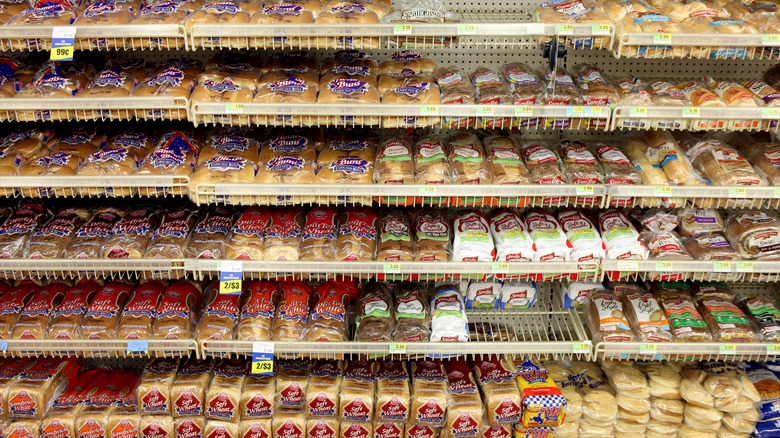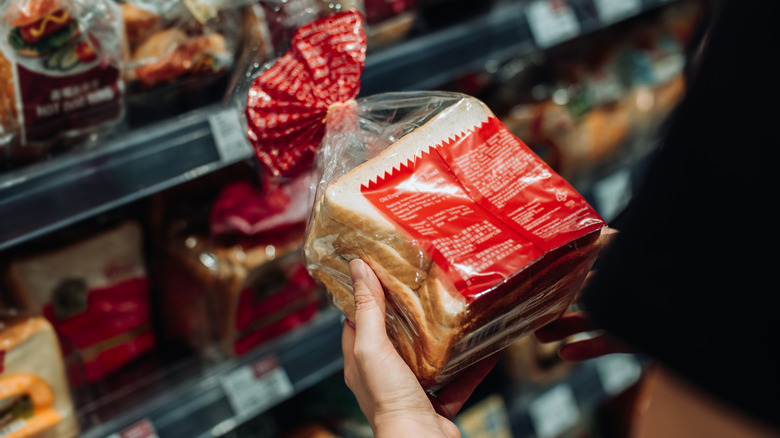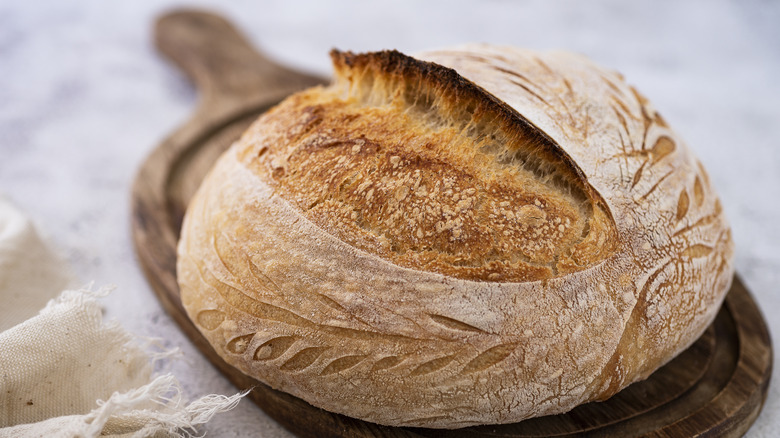The One Time Supermarket Bread Is Superior To The Artisanal Stuff
The best thing since sliced bread is probably being able to buy sliced bread — at the grocery store, that is. While nothing hits quite like the smell of freshly baked bread, and we all had our sourdough eras during the pandemic, most of us greatly appreciate the convenience of being able to pick up a standard, inexpensive loaf at the grocer's. And if you've ever felt inferior about opting for the store-bought variety versus making your own, or shelling out for the higher quality artisan stuff, you shouldn't.
Take it from a pro: Basic supermarket bread is sometimes the preferred way to go, so says Nathan Myhrvold, a true bread connoisseur, the founder of Modernist Cuisine, and lead author of the "Modernist Cuisine" cookbook series. Myhrvold says if you're buying bread you know you won't be using quickly (maybe it'll be sitting out on the countertop all week), supermarket bread is the way to go.
This is thanks to the added preservatives and ingredients designed to extend its lifespan, which homemade, or even artisanal bakery bread, doesn't contain. Plenty of us are striving to choose foods with fewer ingredients and stay away from artificial additives these days, but there are plenty of instances when these modern scientific advances are something to be grateful for. Preservatives are one perfect example. While they usually get a negative rap, it's thanks to these additives that we can keep a loaf of bread all week without it turning moldy.
Supermarket bread usually contains preservatives
Just about any loaf you pick up from the supermarket, says Nathan Myhrvold, whether it's the cheapest brand or more pricy artisanal types, it will be made with longevity in mind. And since we're all watching our dollars and working to reduce food waste, this can be a very good thing.
Make no mistake of it, the fresh loaf you can get from your local baker is going to taste more delicious than a mass-produced grocery store loaf that was likely made states away. But it doesn't always make sense to choose those loaves, depending on how quickly you plan to use them up. If you're going to use up a loaf quickly, preserving it doesn't matter much, so go for the best stuff you can find. (And of course, store it correctly!) Myhrvold explains: "If you're going to use it instantly, buying it fresh-baked from the local baker is great. If it's going to sit around for a week, then oddly, supermarket bread might be better quality, because the all-natural, no preservatives bread that you buy from the artisanal bakery might go bad in a week or less."
If you use proper storage tactics, like keeping your loaves out of the fridge, a supermarket loaf can potentially last a week or more, thanks to the inclusion of emulsifiers, enzymes, and antimicrobials designed to keep bread from going stale, dry, or moldy.
Choose longer-lasting bread or freeze it
If you love the idea of loaves with longer lifespans, but don't love the idea of additives and preservatives quite as much, you don't have to choose just one or the other. It is possible to meet somewhere in the middle.
How? When you're at the local baker, opt for naturally longer-lasting artisanal picks such as sourdough. Not only is it delicious, but it also inherently lasts a little longer than other breads — even sans preservatives — thanks to the naturally occurring lactic acid found in sourdough as a result of fermentation.
Or, you can buy any fresh loaves you love and just plan to use 'em up fast, perhaps making a big batch of delicious French toast, bread pudding, or simply indulging in the deliciousness that is a fresh slice slathered with butter. You can also always freeze your bread — any type, including the fresh-baked artisanal loaf — to make it last far longer than it otherwise would. Just pre-slice, then freeze, so you can easily pull out just the number of slices you need and keep the rest frozen and perfectly preserved.


